Homeschooling Through High School (a continuation of yesterday’s interview)
This is a continuation of yesterday’s interview, Homeschooling Through Spousal Deployments, a Destructive Flood and More. Today I’m continuing that interview starting with some questions about homeschooling through high school.
Many people decide to put their kids into school for their high school years. What has made you decide to continue homeschooling them?
First, the kids really don’t want to go to “regular school” – they like the freedom of learning in depth and at their own rhythm. We homeschool year round, so when the oldest decides it’s time to put in a half-acre garden during spring, we’re comfortable letting her drop her book-schooling for weeks while she does the planning and planting. Likewise, last year (which was 9th grade for the oldest) all three kids participated in NaNoWriMo and wrote novels during November – and we let the other schoolwork slide. That flexibility is valuable for the other things the kids want to accomplish. I find that taking the long view (“in the next 12 months, we need to accomplish X”) allows for an ebb and flow around the subject matter that allows for focused bursts in a variety of areas. No two schooldays are the same – it looks a lot like my own scholarly life.
Do you feel prepared to teach them the tough and rigorous subjects taught in high school?
Our role in HS is more as facilitator – there are books and web resources out there to cover *anything* they might want to undertake. I don’t have to know everything, but I do have to know how to find it. There are subjects where my oldest already knows more than me. There are other subjects where she really needs my help. There are yet other subjects where the refrain is “dad’s rowing that boat.”
What about college? Do you worry about the options open to the kids as homeschoolers?
No worries at all. For one thing, most colleges now look very seriously at homeschooling applications. The academic preparation of homeschoolers does tend to trend higher than that of their peers (all that one-on-one time tends to do the learner some good!), and academic longitudinal studies show that they do very well once they get to college. Admissions officers no longer panic when they have an application from a homeschooler! We will start drilling the college skills more heavily over the next couple of years – my kids are unaccustomed to textbooks, and learning how to use that tool effectively needs to be on the list of things to do. That and bubble-test prep; there are tricks to multiple-choice exams that our kids haven’t had to learn yet. But mostly, we’ll just keep on with what we do.
And now to your day-to-day homeschooling these days. Do you have a particular style of homeschooling?
Eclectic trending toward unschooling, but with math, writing and foreign language as recurring check-points. We school year-round; the big vacation is often school-centered, and what “counts” is highly variable. Some weeks, videos are an important part of the intellectual offerings; other weeks, it’s more like book-school. Projects dominate a lot of what we do. Our chickens, for example, started as a lesson on working out decisions via spreadsheets. There are bits of the snap circuit kit over next to the lamp. The youngest took her “static electricity” demonstration with her to scouts a few weeks ago to share with the other girl-scouts. We’re researching New Mexico for our big summer trip – petroglyphs and ruins are in our travel future! Homeschooling is definitely cool.
Do you have a specific curriculum you work from or do you design your own?
We design our own. We use the Volunteer State Book Award reading list for much of our literature needs, and we have “Life of Fred,” “Murderous Maths,” and “Rosetta Stone” as framework curricula. But I’m forever sending the kids links to interesting science or history articles, or grabbing a stack of books on some subject, or working through an experiment that came up, or finding the right computer game to address that question about fractions, or following what this or that child is interested in.
What curriculum/books do you recommend most often to fellow homeschoolers?
I suggest the long view: what do you want your child to know better at the end of the year? Some of that will be in the area of citizenship and being a good person, some of it will be academic, some of it will be skill-based. Everyday, you should do some writing and some math (and some foreign language, but we’ve fallen off that horse and will pick it back up AFTER my book goes to the editor in June. Whew.)
For ease of delivery, I like “Life of Fred” or any of the various math workbooks as a go-to systematic drill. For writing, we do a lot of practical writing: an application essay or an answer to a scout merit badge question become workshops for writing well. A poem read in the car that gets resonance becomes a model for some writing of their own. And talk, talk, talk, talk, talk! What did the kids like about the movie, the book, the activity. What would they do differently? How does dialog shape what you notice in the story? What’s the place of a narrator in the history channel movie that we’re watching? Being thoughtful about whatever you’re doing – and teaching them how to investigate the things they have questions about – that’s homeschooling at its finest.
Not that we don’t fuss if they haven’t done their chores or gotten to the topic that’s on our worry list. Sometimes a kid needs to hear, “This school task isn’t optional.” But we’re ready to take the school that comes accidentally our way – a chance to talk with the weather-chaser van’s driver is going to be a MUCH better lesson than filling out some quiz on a book they’ve read.
What did the kids do for school yesterday? Do most of their days look like that?
We participate in a co-op once a week – last semester it included geography, portraiture, and human anatomy – and each day of the week has its own set of obligations. Monday is art class, Tuesday is Piano, Wednesday is homeschool group, Thursday mornings I’ve tried to stay home to work one-on-one with one of the kids for a couple of hours since so many of my evenings have held work-related obligations, Monday and Thursday is soccer, and on and on and on. You’ve heard the joke about homeschool: It’s not school, and we’re never home. Still, we’re also living on a farm – that sets up certain rhythms of its own, and homeschooling is integrated within that rhythm. Any 30-minute trip with mom is going to involve either book on tape or car-school of some sort. Any similar trip with dad probably involves Gameboys or the radio. What we almost never do is “traditional school” during “school hours” – and we almost always have games or books in the evenings as a group – schooling is as much a lifestyle as it is a set of “school tasks.”
How do you manage the school/house/work/kids’ activities/meal balance let alone the professional work and duties you both have? How do you do it all?
We have an amazing calendar system (five interlinked Google calendars with viewing and editing privileges for both parents). And we have good friends who form our version of extended family: I’ll take your child to this event; can you take my child to that one? We do a lot of tag-team parenting. Tom does one thing, I do another, we meet up and pass children around–sometimes at Interstate exit rendezvous!
We’re also very intentional about how we spend time with the kids. I’m one of those odd soccer parents who doesn’t habitually watch the game (though I do watch moments in the game.) We talked with our 10 year old athlete, and asked: there are two hours involved. Would you rather have the 2 hours as face-to-face time, or as game-watching time? She’d rather have the interaction, so I carry my committee work to the soccer field, break out the laptop, and work. But by the same token, we sit down together at the kitchen table and play Boggle or work on fractions; we read poems and essays in the car and talk about what they mean; we do things together.
As for meals, I long ago decided that cooking counts as school; we count it as part of our four hours if we need to, but more often it’s just something we’re doing together. Cooking has made them extremely self-sufficient, teaches them responsibility, allows creativity and the opportunity for successes and failures, and keeps all of us sharing the work-load.
Tell us about your most favorite homeschool project/activity/memory:
For me? Taking them on the Oregon Trail. What a lot of museums and sights!!!
For the 15-year-old: The Oregon Trail. Best moment on the Oregon Trail was the museum at the end. It was interactive and had a lot of dioramas so it looked real instead of all those painted walls we saw at other museums.
For the 13-year-old: Learning Morse code. I found that very interesting. It’s like learning another language, except way easier.
For the 10-year-old: One of my favorite homeschool projects, was when I had to do a project on the bladder for my Anatomy class. I found out a lot of interesting things about it. Did you know when the bladder is empty it is about the size and shape of a pear? Or about the “Detrusor muscle”? It is the muscle in your bladder wall; it relaxes to allow your bladder to fill. When you go to the bathroom it contracts to squeeze out the urine. The bladder can hold 300-350 ml. And those are my favorite things about the bladder. And here are some of my not so favorite things. Bladders occur throughout much of the animal kingdom. And last one, it’s a bit like a balloon: as your bladder fills, it expands to store the urine.
How has your homeschooling changed since you first began? Has it unfolded as you first envisioned it?
I’m much less book-based than I expected I’d be. We’ve trended increasingly toward unschooling – or perhaps more precisely, moment-based schooling, where the interests of the moment drive the next few weeks. The youngest asked a question about American Indians. Wham, it’s a unit. The middle child loves loves loves a particular history video series. Off we go to order the dozen similar episodes that fill that interest. We are forever introducing things, but I’m less worried about being “comprehensive” and more aware that good learning is deep learning.
What advice would you give to homeschoolers just starting out on this journey?
Breathe. It’s all school as long as they’re learning! Emphasize talking about what they (and you) know/think/believe. Make the journey one you’re taking together – when you are learning alongside them, it’s homeschooling at its finest. I know a whole lot more about mushrooms and chickens and the rules of soccer than I ever expected to – and that’s a joy for all of us!
Thank you, Cynthia!
You might be interested in our other Homeschool Interviews and Guest Posts:
- An Interview with A Homeschooling Dad
- An Interview with a Christian Classical Educator (Part 1) and (Part 2)
- An Interview with a Montessori Homeschooler
- Homeschooling Through a Virtual School
- Homeschooling in Australia
- An Interview with Erica of Confessions of a Homeschooler
- Interview with a Radical Unschooling Family
- Guest Post: Working Outside the Home, Homeschooling Mom – A guest post by one of my very best friends! 🙂
- 11 Year Old Shares Her Thoughts on Homeschooling – The daughter of my friend (above) wrote this!
- Guest Post by My Homeschooling Sister: Intensity in Learning
- Homeschooling Through Spousal Deployment, a Destructive Flood and More (Another post featuring my sister’s homeschool journy. They lost their house during flooding in Nashville 5 years ago.) and Part 2 of that post–Homeschooling Through High School (My sister’s kids are Older than Mine!)
- Homeschooling Through the Teenage Years: Video by Susan Wise Bauer
See you again soon here or over at our Homeschool Den Facebook Page!








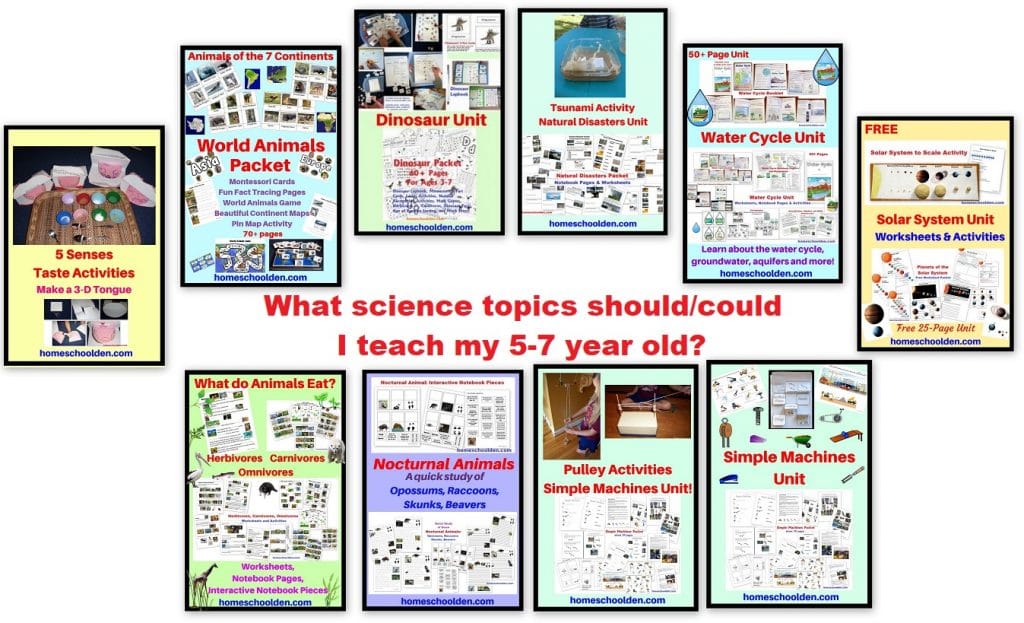






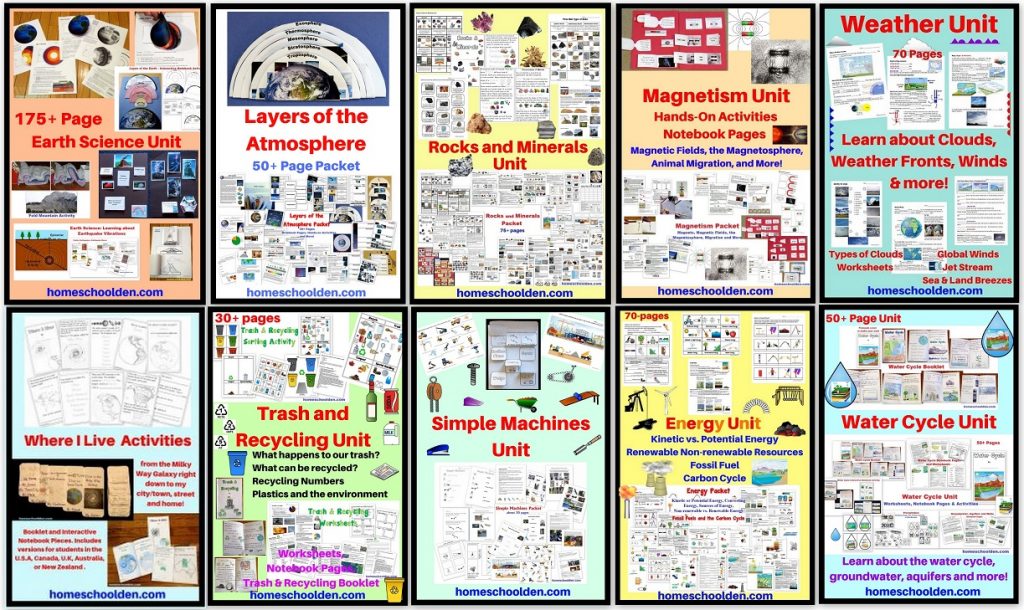


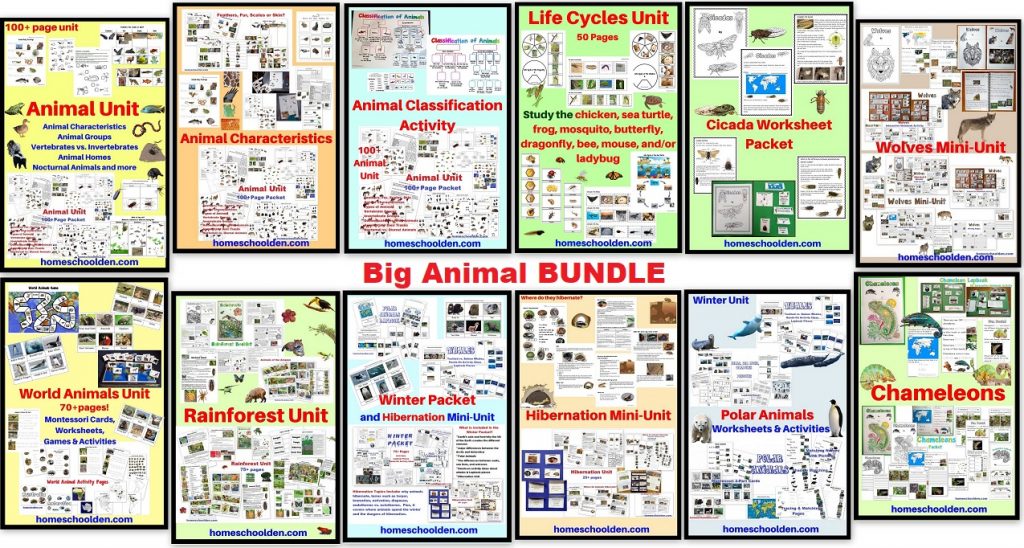















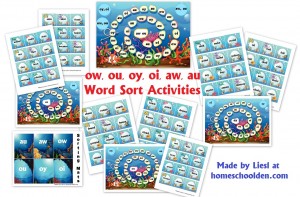


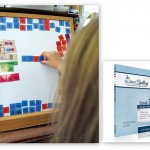

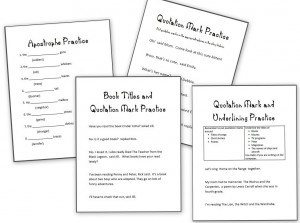

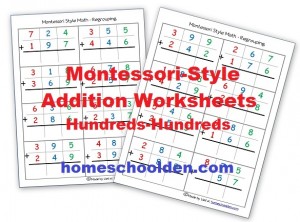
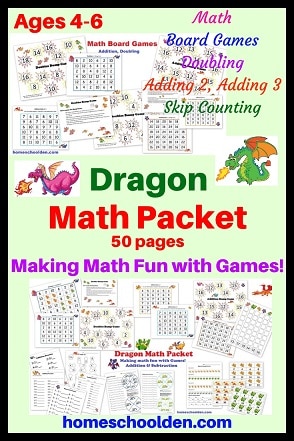
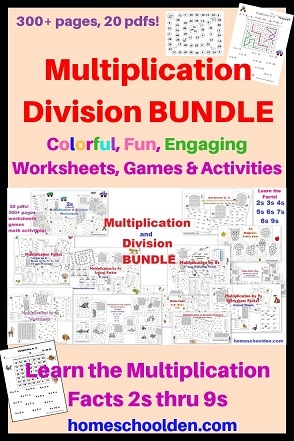
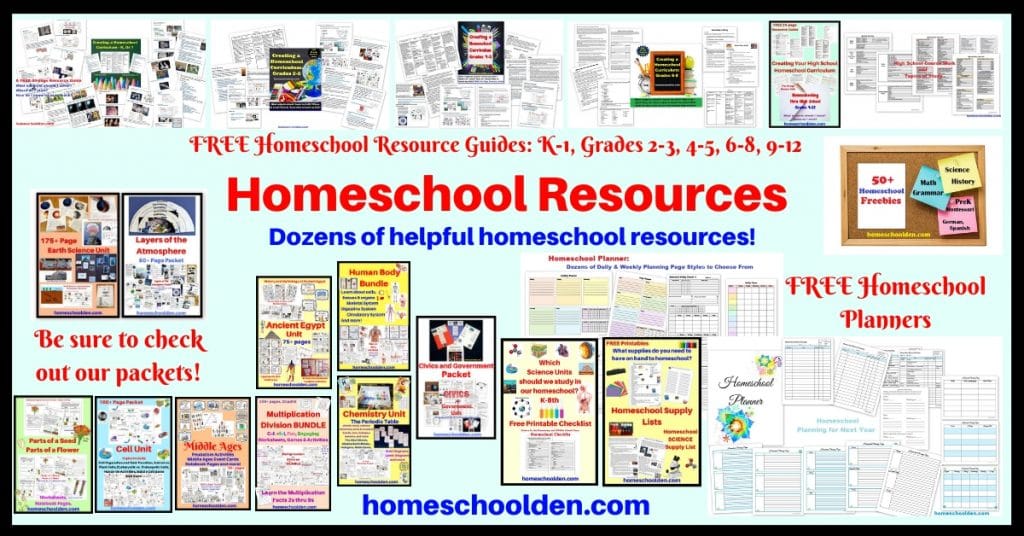
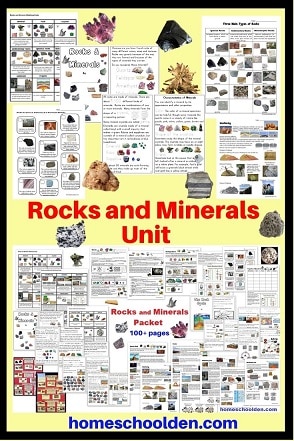




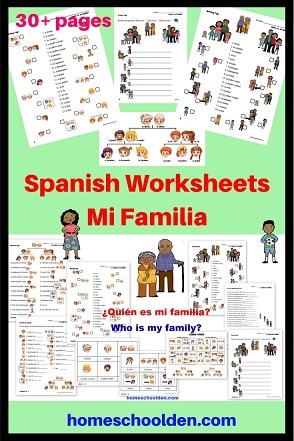

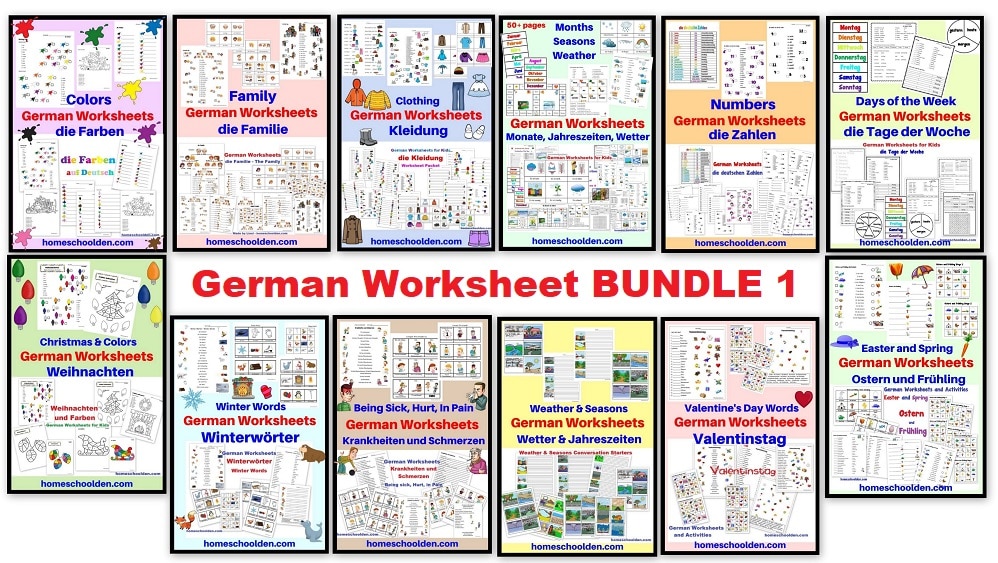
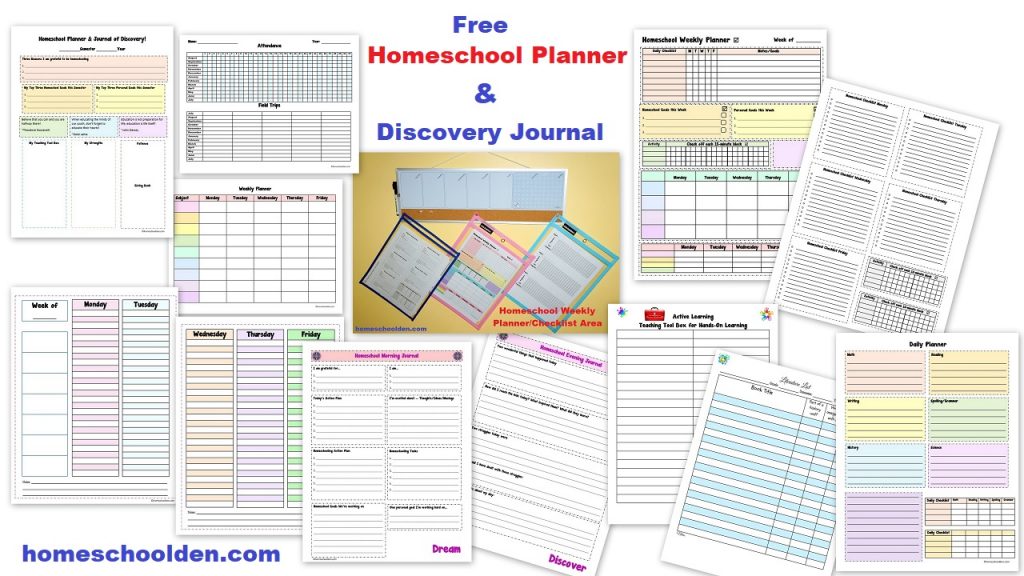
This is an awesome post! I’ve “graduated” three of my kids and never understood why so many people send their kids to school just for high school. It’s the most boring years of public schooling and the social atmosphere is horrid. We really need more articles like this so people don’t panic so much about high school.